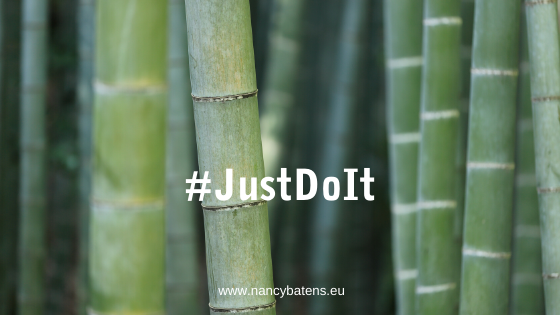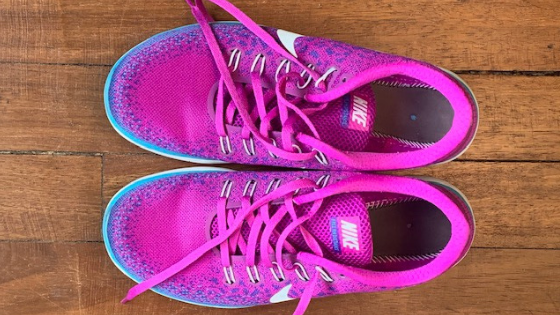I have already been talking about this on social media for the past couple of days but now I would like to bring it together AND give you some examples.
Often people think that assertiveness is about techniques. I don’t really agree. I think techniques can help to formulate your message. However, if you don’t ‘think’ assertively, even these carefully crafted messages might come across aggressively or subassertively.
What is this ‘assertive mindset’?
I am OK / You are OK / WIN-WIN
I am OK
In order to be able to be assertive, you truly have to believe that you are OK.
You are good enough. You are competent enough. You are … enough.
This doesn’t mean you are perfect.
This doesn’t mean that you don’t make mistakes.
You do make mistakes and … even then, deep down, you are ok.
At identity level, you are ok.
If you don’t truly believe so, chances are that you are going to be subassertive: you’ll put the other person on a pedestal and you’ll accept everything he or she says. You might not even react at all and nobody might even know what you are thinking/feeling.
Other people might ‘hide’ their insecurity by overcompensating so they will behave in a defensive/aggressive way… Which will only provoke defensive/aggressive behaviour back…
Example
On Friday I had a get together organized by one of the companies I work for. As a ‘gift’ we got an individual photoshoot. And we could use these photos for our own portfolio.
I was sick that week and I hadn’t slept that night (coughing, blowing my nose). When I arrived two hours (I had warned them in advance), it was almost immediately my turn.
It was ok but the photographer told me that I did look tired on most of the photos. I could not really argue with that.
As the day passed by, I started to get a bit more energy. And I thought: why not ask if I could get another go? The photographer was still there, working with my colleagues. In my pre-assertive period I would not have asked. I would have considered this to be my problem, not the photographer’s. ‘Don’t make a fuss’. Now I thought, ‘I can ask and she can say yes or no’… She said yes ;-D And I was quite pleased with myself.
You are OK
When I need to be assertive with you, I do not only need to find myself ok, but you too.
Unfortunately, this is not always so easy.
When do we find it the hardest to be assertive?
When we have to pass a ‘difficult’ message.
This could be giving negative feedback, saying no, safeguarding our boundaries…
Let’s have a look at giving negative feedback.
If I have to give negative feedback to you, I usually belief you did something ‘wrong’. And because I find it difficult to tell you, I typically wait too long. Up to the moment you really get on my nerves and… what bothered me at first, has evolved to something much bigger. Chances are that I don’t like you anymore and that when I finally start the conversation, I might be a bit ‘aggressive’.
It’s important to make a difference between the person himself (his identity) and his behaviour. The fact that a person did something which is not ‘OK’, does not mean that he or she is not OK.
I choose to believe that everybody is OK (although I’l admit that some people hide their OK-ness very well) and to focus on the specific behaviour when giving feedback. This helps to remain assertive (and for the other person not to get (too) defensive…)
Example:
Sometimes one of the participants in a course behaves in a ‘strange’ way. It’s very easy to react ‘automatically’: this is not ok! And to get defensive.
If I can manage to remain calm and just think ‘that was an interesting reaction’ instead of ‘what a strange person’ usually things work out very well. Sometimes I actively go looking for ‘positive things’ to outweigh the negative ones.
If I do NOT control my reaction, he would truly become a difficult participant… and I might start to change my behaviour as well… and not in a good way… And it could have an effect on the other participants as well.
WIN-WIN
When I go for assertive, authentic communication, I want to make the experience as WIN-WIN as possible for both parties.
Ideally nobody feels like the ‘loser’ at the end of the conversation because if that is the case, they might want to get ‘even’ next time.
So do know what’s important for you, without ‘imposing’ it on the other, because this could be ‘aggressive’. Listen to him/her to see if you can come up with something that could work for the both of you.
It’s this balance between knowing what you want AND remaining open to alternatives.
Example from a participant:
When I buy a car, it’s usually a ‘nearly new car’. I drive a hard bargain and I usually negotiate an excellent price. When it’s time to get my car serviced, I have to go to another garage. Because I’m afraid I will be charged a higher price (to compensate).
Do you see why? Because he (=the participant) went for WIN-LOSE and because he won, the other one inevitably lost and … this might play a part in future interactions. If the first interaction had been ‘win-win’, it would have been a different story.
Do you now understand what I mean by the assertive mindset? If you’ve really integrated this mindset. You don’t really need a technique. You attitude will be assertive.
This being said, it’s not always easy to think and behave this way 24/7, so… if you also want to use the techniques: be my guest! (I do too!)
If you would like to work on your assertiveness, check out my online training here.


